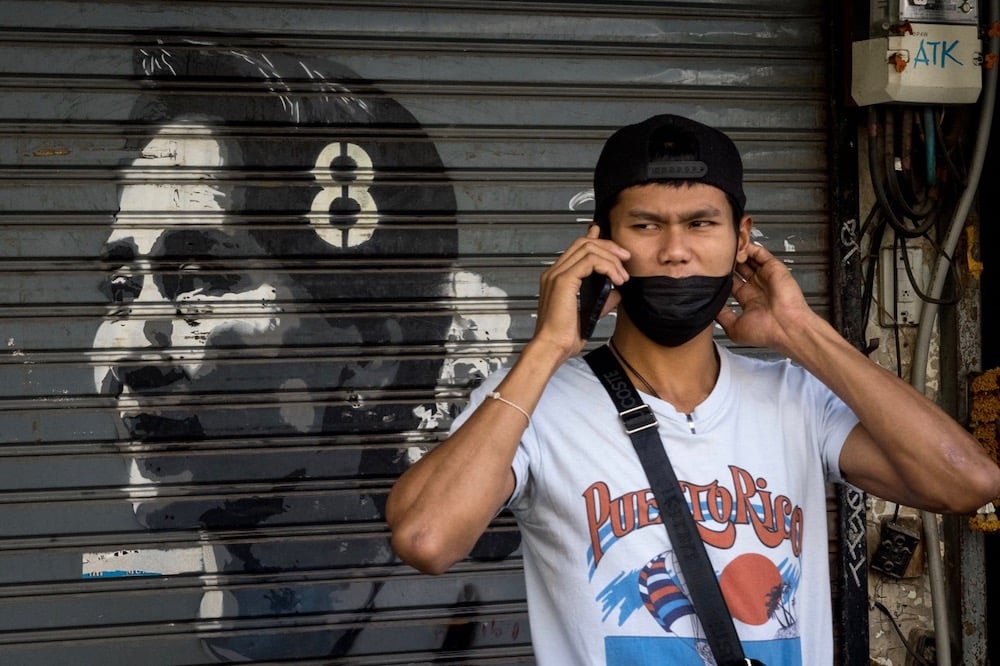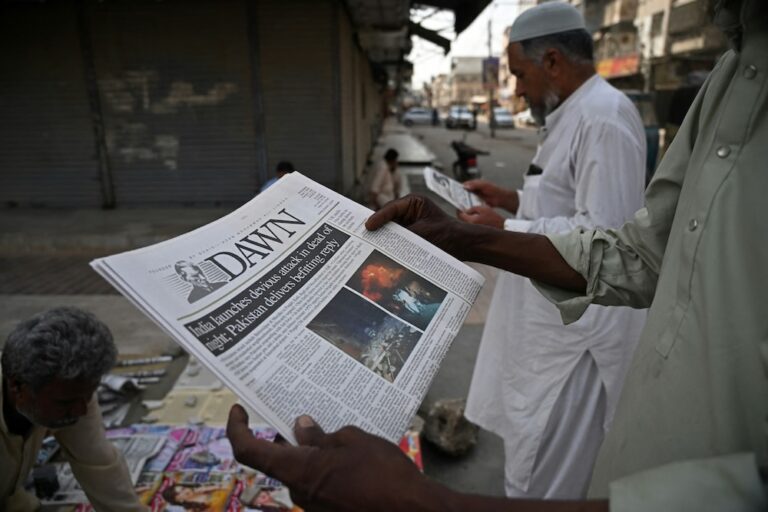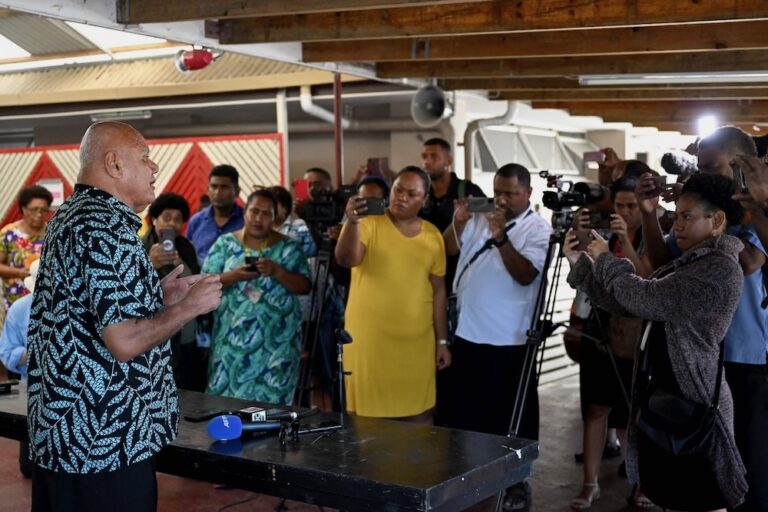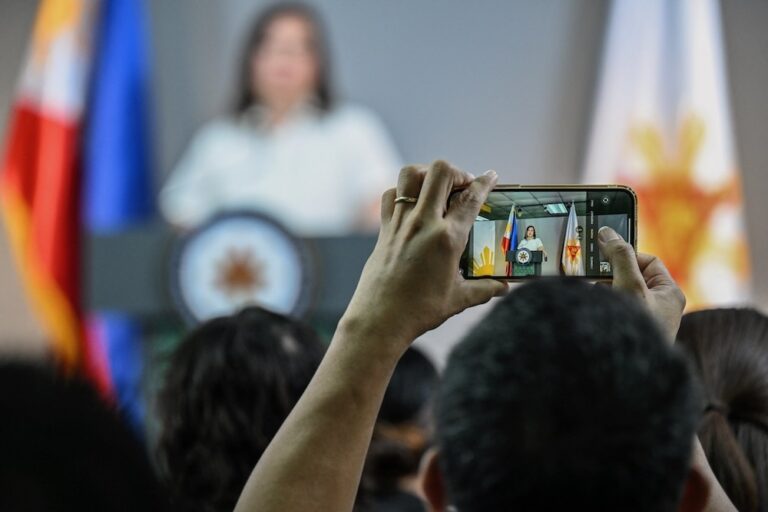March 2022 in Asia-Pacific: A free expression round up produced by IFEX's regional editor Mong Palatino, based on IFEX member reports and news from the region.
From Myanmar’s ‘digital coup’ to Cambodia’s national internet gateway, several Asian countries have either adopted or are trying to push through new laws and regulations that threaten freedom of expression. But civil society groups and journalists are pushing back and mobilizing public awareness and resistance against these repressive measures.
Myanmar’s ‘digital coup’
Human rights and media groups have warned against what they call the “digital coup” in Myanmar characterized by the following:
- Internet shutdowns intended to hide serious human rights violations
- Control of telecommunications providers and abuse of surveillance technology
- Legal tools weaponized to stifle individuals’ rights to expression, information, and privacy
- Price hikes and onerous data provision requirements creating barriers to online information and services
- Harassment and online dissemination of incitement to violence, propagating fear and insecurity
Among the legal tools adopted by the junta are the amendment of the Broadcasting Law and the revival of the Cybersecurity Law which criminalizes the use of Virtual Private Networks (VPN).
Meanwhile, journalists continue to face persecution simply for doing their work. In separate trials, three journalists were recently sentenced to prison for spreading “false news” about the military regime. They include Mizzima News editor Than Htike Aung, Myanmar Thandawsint (Myanmar Herald) reporter Ye Yint Tun, and Kamayut Media editor Hanthar Nyein.
Civil society groups are pressing for urgent global action against the “digital coup.”
“Every day, the people of Myanmar continue to suffer escalating attacks in an environment of repression and violence. The coup is offline and online. The international and business community must resist. Continued inaction costs lives.”
Bangladesh’s draft regulation for social media
Forty-five groups, including IFEX members, have sent a letter to the Bangladesh Telecommunication Regulatory Commission urging it to reconsider and review the draft “Regulation for Digital, Social Media and Over The Top Platforms”. If passed into law, the groups said “it will have a deleterious impact on human rights, and put journalists, dissidents, activists and vulnerable communities, in particular, at greater risk.”
The letter cited several problematic aspects in the draft regulation, such as the “traceability requirement which will undermine end-to-end encryption, truncated timelines for content removal, the mandate for intermediaries to block an overbroad and ambiguous range of content, and the absence of a safe harbor provision and specter of penalties for intermediaries.”
Media groups are worried that the new regulation will be used in tandem with the draconian Digital Security Act, which could worsen the crackdown on dissenting voices in Bangladesh.
Philippines’s SIM Card Registration Act
The Philippines’s SIM Card Registration Act will require the registration of SIM cards prior to their use and activation. It will also mandate social media companies to register the real names and phone numbers of individuals creating accounts on their platforms. Online petitions have been launched calling for the repeal of the law. Critics said the new law would make it more difficult for investigative journalists to perform their work. Whistleblowers might be at risk, especially if they divulge information involving authorities. Activists are worried that the new law and the Anti-Terrorism Act will be used to further erode the country’s shrinking civic space for freedom of expression.
Transgender people have also expressed concern about how the law will force them to adopt their “dead name” to avoid imprisonment.
Nepal: Amending the rules of the National Broadcasting Regulation
In a roundtable discussion organized by IFEX member Freedom Forum, several stakeholders in Nepal expressed concern over the amendment of 10 Rules of the National Broadcasting Regulation, 2052. They warned that the vague provisions in the amendment could be intended to suppress online freedom of expression in the country. The amendment mandates the registration of internet-based broadcasting videos; it is unclear whether the objective of issuing licenses is to generate revenue, regulate content, or restrict the views of internet users. For Digital Rights Nepal, the lack of clarity “could be misused at any time to suppress free speech.”
Sri Lanka: ‘Cosmetic amendments’ to the Prevention of Terrorism Act
Sri Lanka’s Parliament amended several provisions of the Prevention of Terrorism Act (PTA) amid criticisms that it was rushed and contained only “cosmetic” and “superficial” changes. The Sri Lanka government has been accused of using the PTA to justify the prolonged detention of minority communities and members of civil society. Bowing to international pressure, the government had earlier agreed to introduce amendments to the law in order to align it to international human right standards. But the Parliament skipped committee hearings, which could have provided an opportunity for concerned stakeholders to make suggestions. The result is an amended law that retains its notorious provisions. Human Rights Watch (HRW) sums up the abusive feature of the amended law: “Even as amended, the law still allows the government to detain anyone for up to a year without charge, without producing any evidence, and without the possibility of bail. The amendments do not provide meaningful safeguards against torture, instead encouraging it by allowing convictions based on confessions to a police officer.”
Thailand’s bill on Non-Profit Organizations (NPO)
In Thailand, protests were organized during the 24 March public hearing of the Draft Act on the Operation of Non-Profit Organizations. If passed, NPOs will be required to register under a new set of guidelines prescribed by the government. The bill was earlier condemned by civil society groups for containing provisions that could be “easily misused and abused to significantly restrict the rights to freedom of expression, association, peaceful assembly and other human rights.” The bill prohibits NPOs from receiving foreign funding if they are intended for activities deemed illegal and harmful to the public by the government. It also allows authorities to enter offices of NPOs suspected of violating the law and obtain copies of online communications.
Cambodia delays National Internet Gateway plan
Cambodia delayed the implementation of its controversial National Internet Gateway (NIG), but the law which created it remains in force. ARTICLE 19 said “the NIG development process has been plagued with a lack of transparency, and civil society remain in the dark as to the technical infrastructure of the NIG and its real-life implications for everyday internet users.” The government says the NIG would reroute internet traffic into a single gateway to facilitate revenue collection and enhance service to help thwart cybercrimes, such as illicit online gambling and internet scams – but human rights advocates say the provision in the law allowing officials to block online connections or content deemed to “affect safety, national revenue, social order, dignity, culture, traditions and customs” would further restrict digital rights in the country.
Pakistan withdraws amendments to the Prevention of Electronic Crimes Act (PECA)
The Pakistan government withdrew the proposed amendments to PECA after journalists and legal scholars described them as “an affront to online free expression.” The proposal would have made defamation a non-bailable offense, the penalty increased from three to five years, and expanded to include criticism of a “public figure or a holder of public office”. Pakistan Press Foundation said the amendments are “a huge blow to freedom of expression and is likely to result in an even more controlled, censored and repressed media.”
Mongolia postpones draft laws on associations
In Mongolia, Parliament postponed deliberations on the draft Laws on Legal Status of Associations and Law on Legal Status of Foundations, after groups under the Civil Society Consortium and Human Rights Forum of Mongolia expressed concerns regarding these proposed measures. The draft laws include provisions that mandate stringent requirements for the regulation of civil society, which could restrict the work of thousands of non-profit organizations serving the community and make it more difficult to access resources from foreign institutions. Groups including IFEX member Globe International Center (GIC) arranged consultations with some legislators, organized a meeting with journalists, and sponsored public webinars about the need for Parliament to review the draft laws and include the input of stakeholders. GIC has informed IFEX that the draft laws are no longer included in the spring session agenda of the Parliament.



